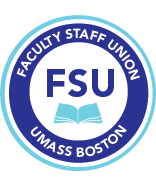The Point: Main Channels and Back Channels
7/27/20
Greetings, Colleagues!
When the Executive Committee of the FSU agreed that the Communications Director (that’s me, for now) should send out a weekly blast email on Mondays the central idea was that we would use the forum to comment on breaking news—on our campus, in our Commonwealth, and beyond—that might be of interest to unit members. But this week I want to step back to ask some questions about how we all get the information that shapes our sense of the health of our shared project. How are you getting your news about UMB and the state of campus life? To borrow some terms invented by linguists (and familiar to most of us, probably, from popular discourses surrounding computer networks), what is your main channel of information about the university? And what back channels do you have access to and find useful to engage with? How, to borrow a phrase from the linguist Victor Yngve, do you “get a word in edgewise”?
These concerns came to me because of all the conversations I found myself in early last week about how bizarre it is that so many of us found out about the budget cuts now afflicting us (as a result of recent Board of Trustees’ decisions) from the radio or an internet news source, and not from our leaders on our own campus: according to news reports, 3 in 10 UMass employees will be affected by these cuts which, as Anneta Argyres, president of the Professional Staff Union points out, would be unnecessary if the system would draw from its ample reserves. At the same time that this austerity news broke, did you also start hearing the whispers that enrollment data for the coming semester is so robust that chairs are being instructed to begin rehiring at least some of the NTT faculty who were sent letters of non-reappointment last spring?
How did you hear about the budget cuts? Traditional media? Social media? An email from a colleague? Why is our upper administration so loathe to engage in regular, clear communication with the campus community about matters of such import? Granted, we are in a time of transition and our departing interim chancellor must be taken up with the demands of the office she will soon occupy—including developing a partnership with a private online educational firm Shorelight (a synonym for “Beacon” as one colleague pointed out to me) as well as promoting the putative central mission of the university as “workforce development” through the engine of UMass Online with its 34 brand-new, high-demand degree and certificate programs. But this moment of dual pandemics requires a higher level of campus engagement and communication than usual, and by this metric the upper administration has been failing.
The main channel of communication is, to put a point on it, broken. What other matters of real significance are being negotiated in deliberations that most of us are not involved with? Our interim chancellor recently sent us an email rightly celebrating the news that the horrible ICE guidance on international students had been rescinded. But do you know whether that is the end of the story for all of our students? Recent press releases from Harvard and other major research universities suggest new international students will not be able to enter the US this fall. On our own campus, I know from my own network of other graduate program directors that there are frightening questions being raised among upper administrators having to do with which international students will be paid this fall: will incoming and returning international students who cannot reenter the US be cut from the payroll? Once again, for too many of us with real responsibilities in this arena, the answer is: ¯\_(ツ)_/¯.
I am always delighted to learn things from my colleagues and I have no doubt they will remain my main source of information about the things that really matter; see for instance, the literal snapshot (attached here) that a member of the Executive Committee circulated to the rest of us this week. For most of us who have not been on campus since March, it might come as something of a surprise: a literalization of what, more than 20 years ago, Bill Readings called “the university in ruins.”
With a new chancellor taking over in the next week and a new provost at the beginning of 2021, it seems like the right time to demand greater accountability from our upper administration. In my 25+ years of teaching I have noticed that administrators love to use the word “transparency,” by which they usually mean “ok, we’ll tell you a tiny bit more than we did last time you asked.” But what if we demanded a radical reimagining of campus communication—one where faculty, staff, and students could access the information we need in something like real time and even play a role in developing main channel communications? Until we do that, I’ll keep looking and listening for you all on the back channels, where I learn so much.
This is your union: please tell us what kind of communications work you are engaged in on campus and how we can support that work at fsu@umb.edu.
Sincerely,
Jeffrey Melnick
Graduate Program Director, American Studies Department
Communications Director, Faculty Staff Union Executive Committee
For information on the FSU, links to our contract and bargaining updates, and a calendar of events, see the FSU webpage
Check out the FSU Blog
Please “like” the FSU Facebook Page
